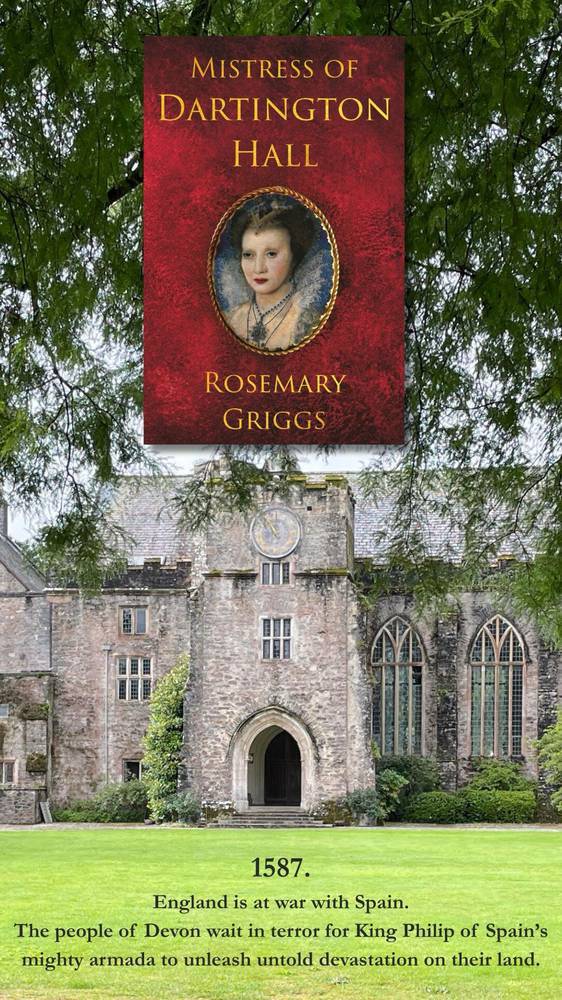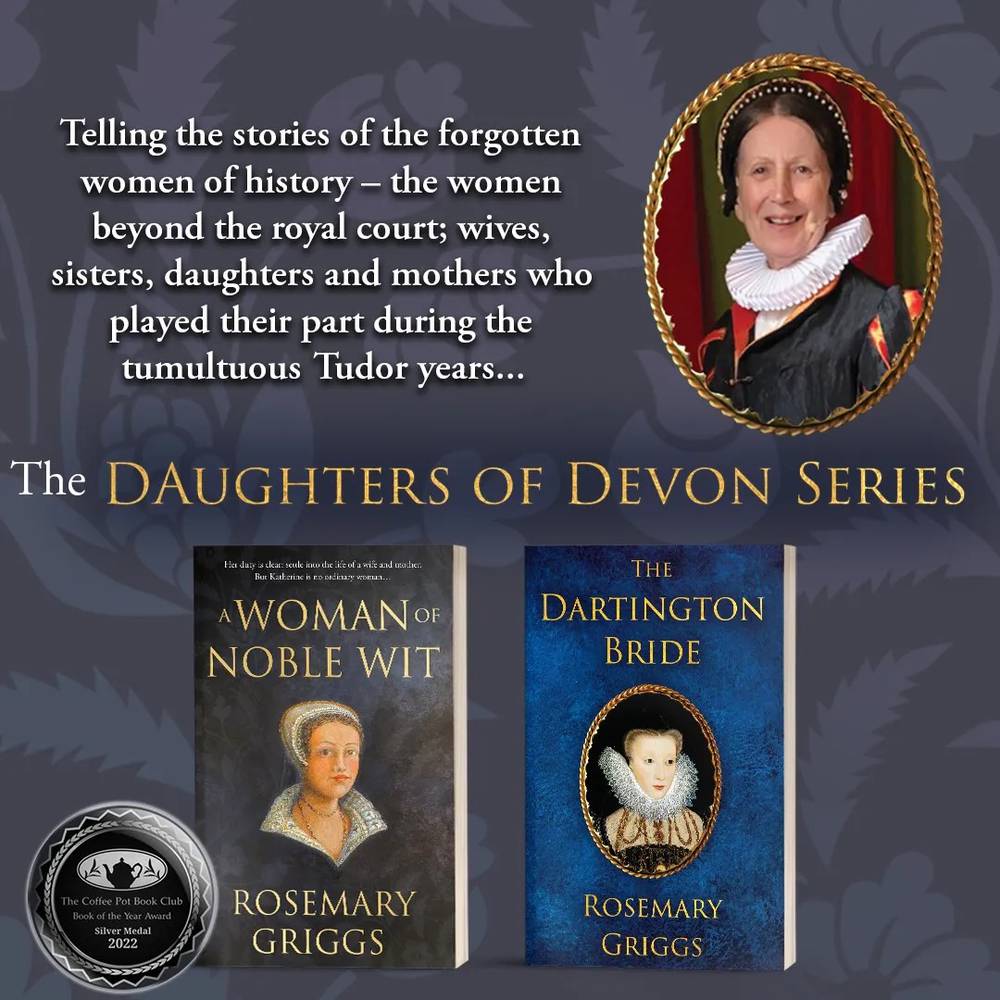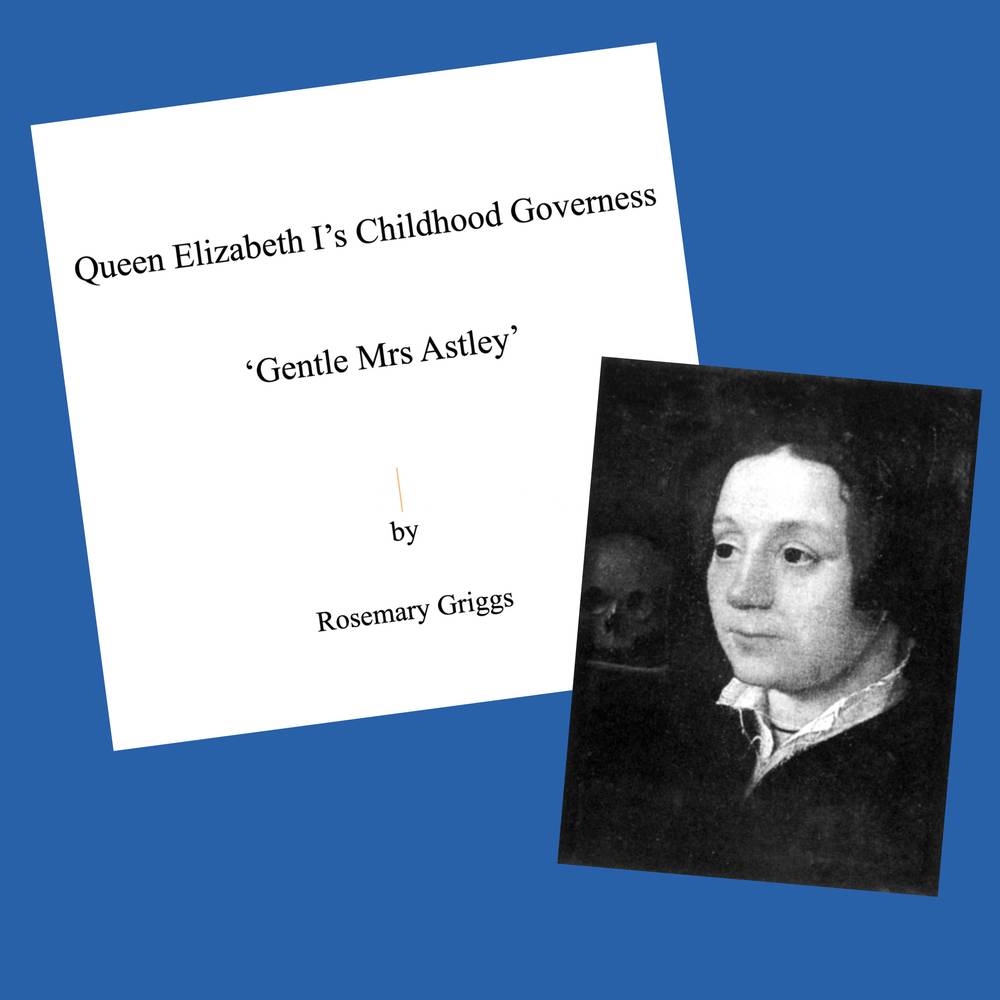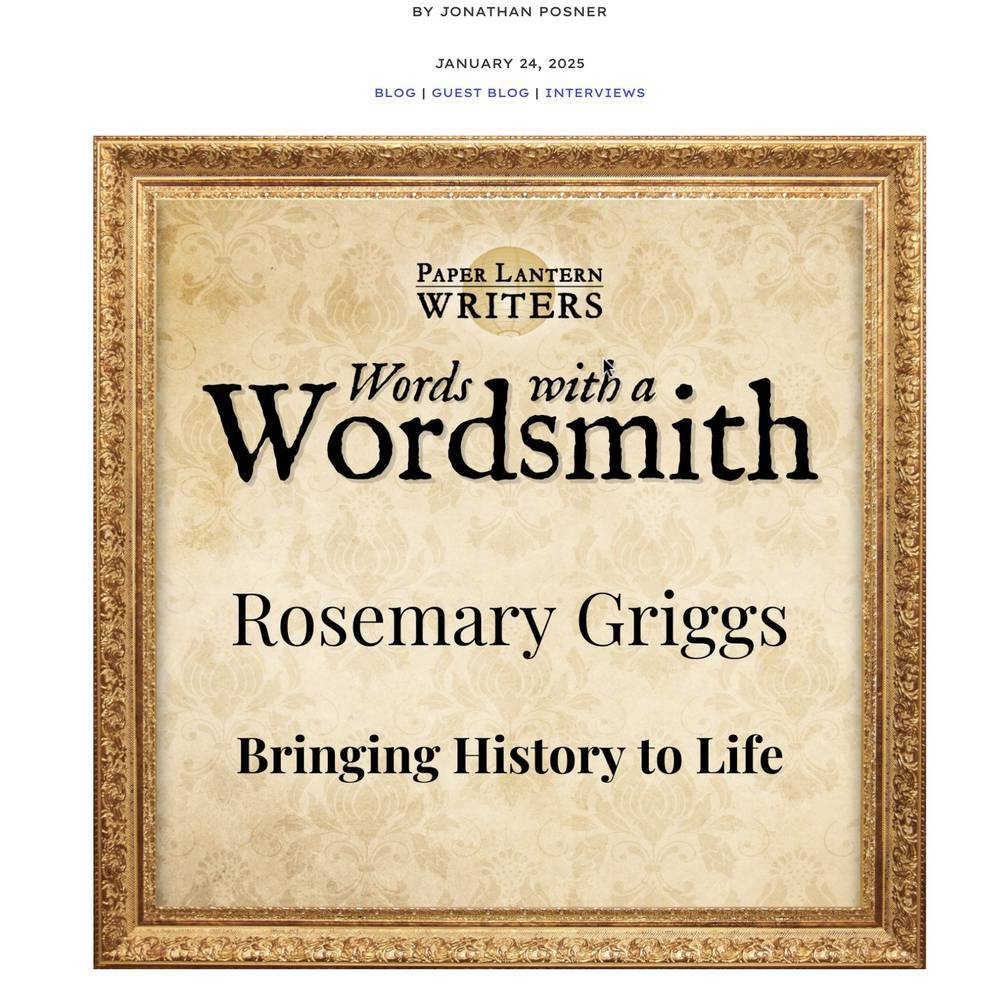
News
The first review of *Mistress of Dartington Hall*
From History Roadshow with Jon Marshall | June 27, 2025Jon Marshall of the History Roadshow reviews *Mistress of Dartington Hall*, the latest novel in Rosemary Griggs' successful Daughters of Devon series. … a striking heroine, conflicted, capable, and utterly human... … returning readers will appreciate Rosemary's consistent focus on untold women's stories and her gift for giving voice to those often left out of the historical record... … a compelling and richly researched historical novel that skillfully balances the personal and political. Rosemary Griggs presents a vivid and grounded portrait of a resilient woman navigating love, loss, and power during a time of national crisis. It's a quiet but powerful story of female strength and agency, perfect for readers who enjoy character-driven Tudor fiction with heart and historical integrity—highly recommended. Read the full reveiw here
https://www.patreon.com/posts/book-review-of-132169768Newsflash!! Mistress of Dartington Hall - E book Available now!!
From Rosemary Griggs | June 12, 2025Be among the first to read Book Three in the successful Daughters of Devon series. Mistress of Dartington Hall is available worldwide from your favourite retailer. Paperback coming soon to UK bookshops - visit your local store to order your copy. Meet the author at Devon book signings Waterstones Newton Abbot on August 16 and Waterstones Torquay August 23.
Guest post Q & A with Rosemary Griggs
From The Tudor Notebook - follow the link to read more | March 15, 2025To continue the celebration of Women’s History Month I am delighted to welcome Rosemary Griggs to The Tudor Notebook. 'I think my whole life has become one long research adventure, and I have to confess I love it. Skills honed during my time in the Civil Service have stood me in good stead. Desk research — extensive reading and searching archive catalogues online — is the starting point. However, wherever possible, I like to study original documents. The focus of my research is the Champernowne family, who have left a wonderful cache of papers to help me unpick the details of their lives.' 'I’m thrilled to have recently signed a contract with Pen & Sword Books to write a non-fiction biography of the best known, but perhaps the least understood, member of the Champernowne family. She’s another Katherine Champernowne and is better known as ‘Kat Ashley’, governess to Queen Elizabeth I. My research is almost complete and we are targeting publication in 2026'
https://open.substack.com/pub/amymcelroy/p/guest-post-q-and-a-55f?r=51v6b5&utm_campaign=post&utm_medium=emailDevon based author Rosemary Griggs to write biography of Queen Elizabeth I's Governess
From Author | February 17, 2025Rosemary said 'I’m thrilled to share with you that I recently signed a contract with Pen Sword Books @penswordbooks to write a non-fiction biography of Queen Elizabeth’s governess. She’s known to many people as ‘Kat Ashley’ I’ve been researching the Champernownes for years. I can’t wait to bring this best known, but perhaps least understood, member of this well-connected Devon family out of the shadows. '
Bringing History to Life - An Interview with Rosemary Griggs
From Paper Lantern Writers | January 24, 2025Follow the link below to read an interview with Jonathan Posner
https://paperlanternwriters.com/words-with-a-wordsmith-rosemary-griggs/



